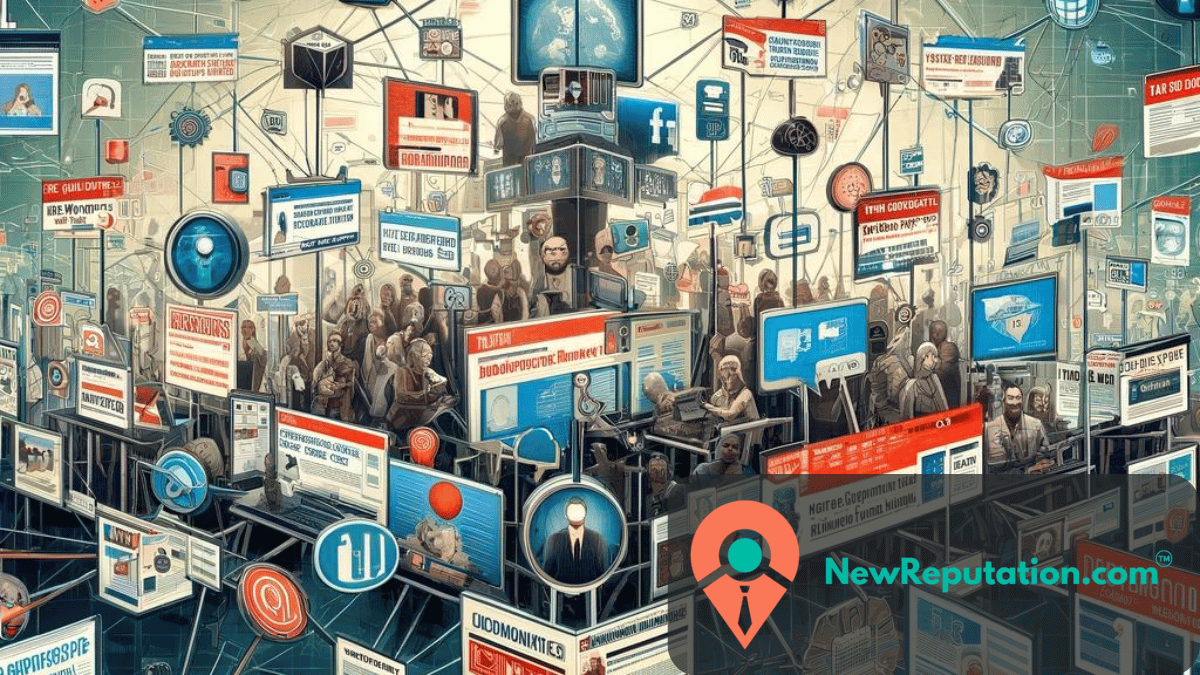Internet propaganda is any message designed to shape your beliefs. It can be true, false, or somewhere in between. What matters is the intention. Someone is attempting to influence your thoughts or feelings about a person, group, idea, or event.
This kind of content no longer comes only from governments or official media outlets. It often begins with influencers, anonymous accounts, or blogs masquerading as legitimate news sources. And because it blends in with real content, many people don’t realize they’re being targeted.
Propaganda Examples You See Online Every Day
Propaganda techniques have been around for decades, but the internet has given them a new dimension. Here are some of the most common examples of online propaganda you’ve probably already seen.
Name Calling
This strategy employs emotional words like “radical” or “traitor” to attack a person rather than their ideas. It is designed to evoke an emotional response and discourage further questioning.
Buzzwords Without Substance
These are emotional words, such as “freedom” or “truth,” that sound powerful but are often used without factual support. They push an idea by making it sound appealing, even when the details are missing.
Guilt by Association
This occurs when someone associates an idea with a trusted image or person to make it appear more credible. For example, placing a flag behind a message to make it feel patriotic or pairing a well-known face with a quote they never said.
Influencer Endorsements
When celebrities or online personalities share their political opinions or support specific causes, it fosters trust. However, that trust is based on popularity, rather than expertise.
Relatable Persona
People use everyday language, casual outfits, or personal stories to appear just like their audience. This technique builds a connection, even when the story is carefully planned for that effect.
One-Sided Information
Also known as cherry-picking, this tactic presents only the favorable or unfavorable aspects of something. You’ll often see it in posts that praise one idea while ignoring the problems.
Social Proof Pressure
You may see messages like “join the movement” or “everyone agrees” used to create pressure. This bandwagon effect makes people feel like they need to agree to belong.
How Internet Propaganda Spreads
Online propaganda spreads faster than ever before. It often shows up in a meme, short video, or dramatic headline. Because it aligns seamlessly with other content, it travels quickly across platforms like Facebook, TikTok, and YouTube.
Memes and Short Clips
These formats are fast, emotional, and easy to share. A funny image or video can simplify a complex issue and push a message in seconds.
Fake News Websites
Sites like these often copy the look and layout of trusted news sources. Their stories are designed to mislead and push certain opinions. People often believe them because they seem familiar.
Algorithms and Echo Chambers
Social media can show you more of what you already agree with. If you like or comment on one type of content, they give you more of the same. This creates a loop where only one side of the story is seen.
Bots and Fake Accounts
Bots are automated accounts that repost or promote certain ideas. They make a message look more popular than it really is. This false popularity convinces real people to trust and repeat it.
Why Online Propaganda Matters
Internet propaganda does not just affect politics. It changes how people think about education, public health, climate change, crime, and even each other.
It can damage reputations, cause real-world conflicts, and instill fear in people about things that are not true. Worse, it often feels personal. It shows up in your feed or group chat, shared by someone you know. That is what makes it so powerful.
If you believe a false message and repeat it, the effect multiplies. And when enough people believe the same false story, it can shape elections, policies, and entire communities.
Role of Influencers in Digital Propaganda
Influencers have become a powerful force in digital marketing and advertising. They connect with people on a personal level, which makes their opinions seem more trustworthy than those of traditional news or advertising. That trust can be leveraged to shape public opinion, often without the audience being aware of it. Some influencers are paid or encouraged to promote certain political views or social messages.
This kind of influence can be subtle, like a casual comment in a video, or more direct, like a sponsored post. In some cases, these messages are shared through private or encrypted messaging applications, making it difficult to trace where the ideas originated. The result is a message that feels personal, familiar, and harder to question.
How to Protect Yourself from Propaganda Online
Recognizing internet propaganda starts with a few simple habits.
Look at the source
Is the content from a reputable outlet or just a blog you have never heard of? Can you find the same claim on other reputable sites, such as Reuters, AP News, or BBC News?
Check for emotional manipulation
If something makes you feel angry, scared, or overly proud right away, pause before sharing. That reaction might be exactly what the creator wants.
Search for the full picture
If only one side of the story is shown, do your own research. You can search the topic and check multiple outlets to get a balanced view.
Ask yourself if it offers facts or opinions
Does the content include sources, quotes, or data? Or is it just someone’s take designed to sway you?
Watch your own reputation too
Sometimes propaganda targets individuals. If someone is spreading false information about you or your business, check out our guide on how to legally stop someone from spreading lies online.
What to Do Next
Modern internet propaganda is subtle. It appears to be a joke, a meme, or a brief video. It might come from someone you follow. But behind it is a goal someone wants to control how you think, vote, or act.
The best way to fight back is to ask questions, remain curious, and exercise caution before sharing.
If false information is harming your name, brand, or business, our team at NewReputation can help. We specialize in protecting your image and establishing a positive online presence.

Delphia is the staff writer for the NewReputation Help Center, Sales & Service blog. She has a background in content creation and writes clear, informative articles on reputation management, online visibility, trust building, and how they relate to each other. As an efficient writer who produces high-quality content, Delphia assists with a variety of editorial projects. When she is not working, you can find her traveling, taking pictures, or reading a good book.

